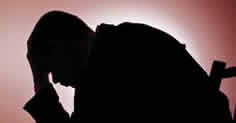Depression - Complementary Treatment for depression using supplements, exercise, diet, relaxation techniques, meditation, massage and other theraphies.
Depression
Supplements for Depression
Exercise for Depression
Diet for Depression
Relaxation Techniques for Depression
Massage Therapy for Depression

Other Article for Depression Treatment and Prevention
Treatment Approach
Depression today is usually treated without hospitalization. However, sometimes a person should be hospitalized, especially if he is contemplating suicide or has attempted it, is too weak because of weight loss, or is at risk of heart problems because of severe agitation.
A person with depression has a number of options for treatment, but a combination of psychotherapy and antidepressant drugs is the regimen of choice. As many as 90% of people with depression improve from psychotherapy and antidepressants; however, there are adverse side effects from certain depression medications.
Complementary and alternative therapies are used treat the symptoms of depression. Other complementary and alternative therapies are also used to help reduce the side effects of some depression medications. The following complementary approach may be considered with due supervision from a qualified medical practitioner.
|
|
 |
| Nutrition and Dietary Supplements for the Treatment of Depression |
Nutrition and Dietary Supplements
Build up your supply of vitamin B . Studies suggest that viamin B ( riboflavin, thiamin, B6, B12 and folic acid) deficiency may be associated with depression more than any other nutrient. Between 15% and 38% of people with depression have low vitamin B levels in their bodies and those with very low levels tend to be the most depressed. Many healthcare providers may recommend a multivitamin that contains B vitamin complex supplement.
Essential fatty acids , such as omega-3 and omega-6 fatty acids play a crucial role in the function of brain chemicals, particularly serotonin and dopamine, Taking in omega-3 and omega-6 fatty acids supplements may help with feelings and symptoms of depression.
L-tryptophan is an amino acid involved in the production of serotonin. L-tryptophan supplementation may help relieve the depression but may not be enough to reduce symptoms of depression altogether. However, some caution should be taken when taking L-tryptophan. L-trytophan has been associated with the development of serious conditions such as liver and brain toxicity, and with eosinophilic myalgia syndrome (EMS). Before using this supplement it is best to consult your doctor.
Melatonin administered to depression patients in one study of only 10 people showed significant improvement in their symptoms compared to those who received placebo. Given the small size of this study, however, more research is needed before conclusions can be drawn regarding use of melatonin for either seasonal affective disorder or any other type of depression.
|
|
 |
| Exercise as Treatment for Depression |
Exercise
Studies have consistently shown that regular exercise (either aerobic or strength/flexibility training) significantly reduces depressive symptoms in people with mild to moderate depression and improves the mood of people with major depression.
- Exercise triggers the release of endorphins, the body’s natural mood-elevating, pain-relieving compounds.
- Exercise reduces the blood levels of stress depression hormone known as cortisol,
- Exercise boosts self-esteem and self worth.
Exercise can be used safely in conjunction with medication for those with depression.
|
|
 |
| Diet and Nutrition for People with Depression |
Diet and Nutrition
Foods rich in fruits and vegetables, particularly leafy green vegetables, are recommended for people with depression.
Studies suggest that people with depression who eat a healthy diet that includes foods that are have fatty fish (such as salmon, mackerel, herring, and sardines) two to three times per week may significantly reduce their feelings of depression and anxiety. Foods rich in fatty fish contain omega-3 polyunsaturated fatty acids (PUFAs), and many individuals with depression are deficient in this substance.
For those who have difficulty maintaining a balanced diet, supplementation with a multivitamin may also be recommended.
|
|
 |
| Relaxation Techniques for the Treatment of Depression |
Relaxation
One study suggests that relaxation techniques, such as yoga and tai chi, may improve symptoms of depression in people with mild depression. Deep relaxation provides a feeling of enchanced well-being for people with depression.
Other types of relaxation techniques that are found to be effective are; music therapy, fiofeedback, viaualization
|
|
 |
| Meditation as Treatment for Depression |
Meditation
Some researchers theorize that mindfulness meditation may prevent depression from recurring in people who once had the condition.
|
|
 |
| Massage and Physical Therapy for Depression |
Massage and Physical Therapy
Studies of formerly depressed adolescent mothers, children hospitalized for depression, and women with eating disorders, suggest that massage decreases stress hormone levels, feelings of anxiety, and symptoms of depression. Giving massage may also be beneficial for people who are depressed. Elderly volunteers with depression showed notable improvement in their symptoms when they massaged infants.
Aromatherapy, or the use of essential oils in massage therapy, may also be of value as a supplemental treatment for depression. Theoretically, the smells of the oils elicit positive emotions through the limbic system (the area of the brain responsible for memories and emotions). However, the benefits of aromatherapy appear to be related to the relaxation effects of the treatment as well as to the recipient's belief that the treatment will be beneficial. Essential oils used during massage for depression are quite varied and include:
- Basil (Ocimum basilicum)
- Orange (Citrus aurantium)
- Sandalwood (Santalum album)
- Lemon (Citrus limonis)
- Jasmine (Jasminum spp.)
- Sage (Salvia officinalis)
- Chamomile (Chamaemelum nobile)
- Peppermint (Mentha piperita)
| Related News and Articles for Depression |
|